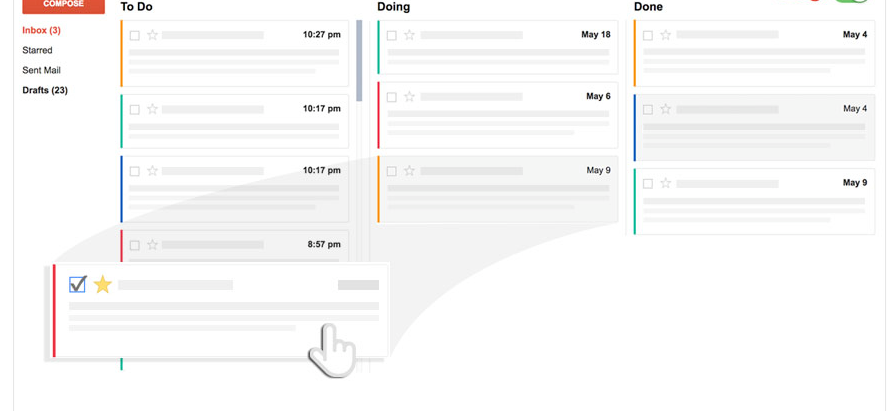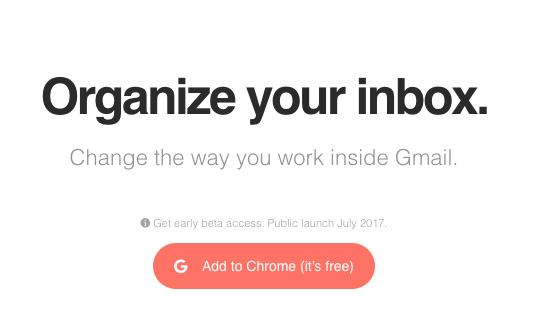I received an email the other day in response to a blog post I’d written, asking me to try out a tool that helps me organise my inbox. Being a fan of anything that helps me manage my tasks I decided to investigate it further.
The email showed a really nice picture of an inbox organised as a visual board (I won’t call it a Kanban board).

Given some of us have treated our inbox as our TODO lists, this didn’t seem like a bad idea. Away I went to the site to try out it.
First thing I noticed was a nice big red button saying it’s free. Hmm, free to try or free forever?

Before even downloading I tried to look for pricing. Nothing there. Hmm.
So if I’m not paying for the product, then like many other services, I guess I am the product. So let’s take a look at their Privacy Policy.
And bingo. Like many other services, what I do is used by them and all the partners they use for remarketing services. While I was somewhat uncomfortable with them accessing my Gmail account, their privacy policy was a dealbreaker.
Looking for sustainable models
To be clear, I’m not taking a dig at this service in particular. For some time now I’ve been overly cautious of the products I’m using and if there is an option to pay, then I do.
The practice of being the product is all too common. Every day we’re selling our private data to companies - how we work, what we eat, what we drink, when we work out, when we don’t. They have it all.
We’re paying one way or another for the things we’re using. And when it’s with our data, we’re putting all our trust in that they not only don’t misuse it, even if that means bombarding us with unwanted ads, but that they keep it safe and secure.
We pay with our privacy, while companies hope that with all this data they can be profitable. Unfortunately this doesn’t seem to always be the case.
Now, while we as software developers should have a role in protecting not only our own privacy but that of others, this isn’t just about privacy, but about creating
a business model that is sustainable in the long run. A model that provides a better service for all involved.
As Josh Pigford recently pointed out (recommend you read the entire thread):
“You know, free is always better than paid.”
— Josh Pigford (@Shpigford) July 10, 2017
I actually know the exact opposite to be true.
Free is not always better than paid.